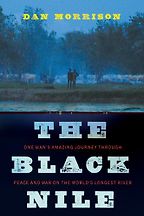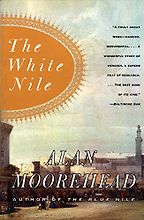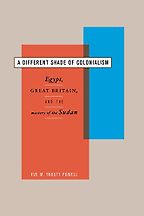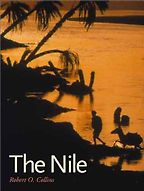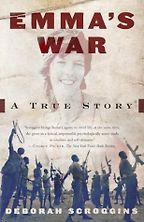Why did you decide to travel the length of the Nile?
While this kind of journey hadn’t been made in ages, the origin of the trip wasn’t terribly romantic, at least not at first. I was wrapping up two years of freelancing in South Asia and the work I’d done in the region felt diffuse, insubstantial. I’d written good stories while hopping around Afghanistan, Pakistan and India, but there were no home runs. I thought the next time out I would try to focus on one big thing, a subject that would hold my attention and a reader’s attention in a lasting way. And then I came across Moorehead’s book, The White Nile, and I thought, ‘This could be it.’ The White Nile had not been travelled since the 50s and 60s because of the Sudanese civil war and similar unrest in Uganda. But the civil war was just coming to an end and, at least in theory, one could now make the journey in something like safety.
How would you describe the resulting book, The Black Nile?
It’s a mash-up of travel narrative non-fiction, contemporary history and political reportage. The idea was to write a book that would be fun to read and the more nutritional components would be less noticeable. It’s very much an on-the-ground travel narrative, but it’s also a look at people emerging from decades of war and wrestling with what comes next. Who are you when you’re no longer fighting? What are you when you’re no longer a victim, or when you’re less of a victim?
The course of a travel narrative is often shaped by the logistics of getting from A to B and by the people you fall in with on the way. I spent several weeks on a barge navigating the Sudd marshland in southern Sudan – the Sudd is massive, as big as England – but the vessel was crewed by soldiers from the rebel army. The barge had this strange dual identity. It was used for humanitarian aid during the war but when the fighting got hot, and the aid workers were forced to flee, the barge became a warship; it took part in ambushes.
I had a companion for the first third of the book, my best friend from the United States. He had never been to the developing world, and I think it was valuable to see Uganda and Sudan through new eyes. I had a plank-board boat built and we paddled it from just north of the source of the Nile for about 100 miles to Lake Kyoga in the centre of Uganda. I had hoped to tow the boat across the lake and keep paddling from there, but we were absolutely wrecked after four days on the river. The wind bears down from the north and the Nile was low and there was no current to help us.
How has the Nile changed?
Nowadays there are surprisingly few vessels plying it. No one is using the river in the way it was used in colonial times, when a series of ports and railheads connected Mombasa with Cairo. Those trade links don’t exist any more. Fishermen know the river a kilometre in each direction because that’s the territory they fish in. But they have no reason to know what lies beyond that.
How would you describe the experience itself?
It was fun, miserable and tiring. Sometimes frightful; it had been a long time since I’d had to take cover from gunfire. And it’s tiring to do these things alone. I speak transactional Arabic so, while it got me by, there were fewer opportunities for human connection in northern Sudan.
Why is your book called The Black Nile?
Because for the most part my journey is along the African Nile. In the popular imagination, the Nile runs from Egyptian monument to monument, but this is only a small part of it. It’s an African river. Questions of race loom large in Sudan; the issue is extremely complicated. And because oil has such a role in the region and in the book – all this together made it The Black Nile.
Let’s turn to Alan Moorehead’s book, The White Nile. Why do you recommend it?
Because it’s fun, rollicking and, at times, hilarious – it’s a wonderful read. It is the prose of someone who was educated before Marxism entered the campuses and before any whiff of political correctness existed. It has no influence on him, and the book takes some heat for that. But both the The White Nile and its companion, The Blue Nile, have the best qualities of history.
Moorehead read everything and he boiled it down in a way that is fun and good to read. He’s not a cheerleader for various explorers and their conquests. He takes Burton to task for his racism. He doesn’t understand Burton’s absolute lack of empathy for the black Africans. Burton’s natural affinity was for the Arab slavers he encountered in the bush, and he couldn’t make the connection between the actions of these slave traders and the abject state of the tribes they plundered.
The White Nile is about the quest for the source of the White Nile, which runs from Lake Victoria to the Mediterranean. The book also follows the rise of the Mahdi in Sudan and his movement’s defeat by Lord Kitchener, and the consolidation of British control over the Nile valley.
Next is A Different Shade of Colonialism.
Eve Troutt Powell examines a relatively overlooked aspect of colonialism in Africa, and that is Egyptian, rather than European, colonialism in the 19th and 20th centuries. She looks at Egypt’s relationship with Sudan and how Egypt came to view Sudan as its own dominion. Confronted with the power and technological prowess of Europe, the notion was that, to be equal, Egypt should have its own empire and it should civilise other people. Mohammad Ali, the founder of modern Egypt, and his successors looked south, to the ‘Land of the Blacks’. Sudan was the first African colony to gain independence but the Egyptians opposed it because they felt Sudan should be theirs.
“Confronted with the power and technological prowess of Europe, the notion was that, to be equal, Egypt should have its own empire”
It’s not written in a popular style, but it is readable and very interesting. She has a lot of juicy details culled from real research, including blackface performances by Egyptian actors lampooning the Sudanese. An Egyptian officer held hostage by the Mahdi complains that he is deprived of his slaves while the Mahdi’s European captives are allowed to keep theirs. In a great opening scene, the speaker of the Egyptian parliament is put on trial by the British-dominated government for buying slaves, and it becomes a nationalist cause.
Next on your list is Robert Collins’ The Nile.
Collins is one of the leading historians of the Sudan. And he is crazy about the Nile. It is almost a biography of the Nile – from its farthest headwaters to the Mediterranean. Throughout the book he provides pieces of human and geological history and the stories of the engineers and technocrats who tried for 200 years to exploit it. Collins is a very fine writer.
He describes Nasser’s struggle to control the Nile. The Nile is an existential issue for Egypt – civilisation would not exist there without it. The age-old question was how to get more water from the equatorial lands up to Egypt. Ideas had been bandied about for decades, and the more practical ones used the equatorial lakes of Uganda, where there’s plenty of rain and cloud cover, as reservoirs that would hold excess water and send it north when needed.
When Nasser came to power, the question for him was: ‘Why would I leave my water in a lake in Uganda?’ He built the Aswan High Dam to secure the water for Egypt, even if it meant that billions of gallons would evaporate each year into the cloudless sky of the Nubian desert. And his anti-imperialist stance only went so far. While railing against the colonial powers, he held the newly independent states of east Africa to a colonial-era treaty that basically allocated them zero per cent of the Nile waters.
“The Nile is an existential issue for Egypt – civilisation would not exist there without it.”
Given the chaos that enveloped Sudan and Uganda in the years following independence, you could say Nasser made the right call. There were years when the Nile was extremely high but the dam held it back, preventing flooding. In the years of drought that caused widespread death elsewhere, Egypt didn’t suffer. The costs were great, but it did the job. At the same time, a hundred-thousand Nubians were forcibly moved to make way for the dam’s reservoir; more money went into the rescue of Egyptian antiquities than to humanely resettling these people. It’s a wound that is still raw today.
Tell us about your final book, Emma’s War by Deborah Scroggins.
It’s a great read and extremely informative about Sudan’s civil war. Scroggins’s vehicle for talking about the war is a British aid worker, Emma McCune, who married a rebel warlord in south Sudan. It is a marvellous story, but in parts you can almost forget Emma exists. Though she is an extremely interesting character, in some ways she is the least important part of the book because there is just so much action and history in it. Emma’s husband, Riek Machar, who I met, is the vice-president of the government of southern Sudan now. His first wife is a top official in the oil ministry. Most of Scroggins’s characters are still very present in Sudan today. Emma’s War is a great book if you’re interested in the history of the region but you’re not a PhD student.
In a way, my book picks up where this one leaves off. Much of The Black Nile looks at the new peace in Sudan while Emma’s War takes place in the 1990s, when the end of the war was still not in sight.
What are your thoughts on the character of Emma?
I believe she acted according to her character. People are fallible. After she was married she was not an aid worker – she was a wife and propagandist. She was not a villain, though there are plenty of those in southern Sudan. When the rebel movement split and her husband’s forces committed massacres of other southerners, she was blind to it.
There is no shortage of people who said that Emma was an accident waiting to happen, but in the end she didn’t die through misadventure, but in a car crash. And, however blind she may have been to the issues, if she had died fighting with her husband for that cause – whatever one might think of Riek’s cause in those days – it is my impression that she wouldn’t have complained.
March 3, 2010. Updated: November 7, 2022
Five Books aims to keep its book recommendations and interviews up to date. If you are the interviewee and would like to update your choice of books (or even just what you say about them) please email us at [email protected]
Five Books interviews are expensive to produce. If you've enjoyed this interview, please support us by donating a small amount.
